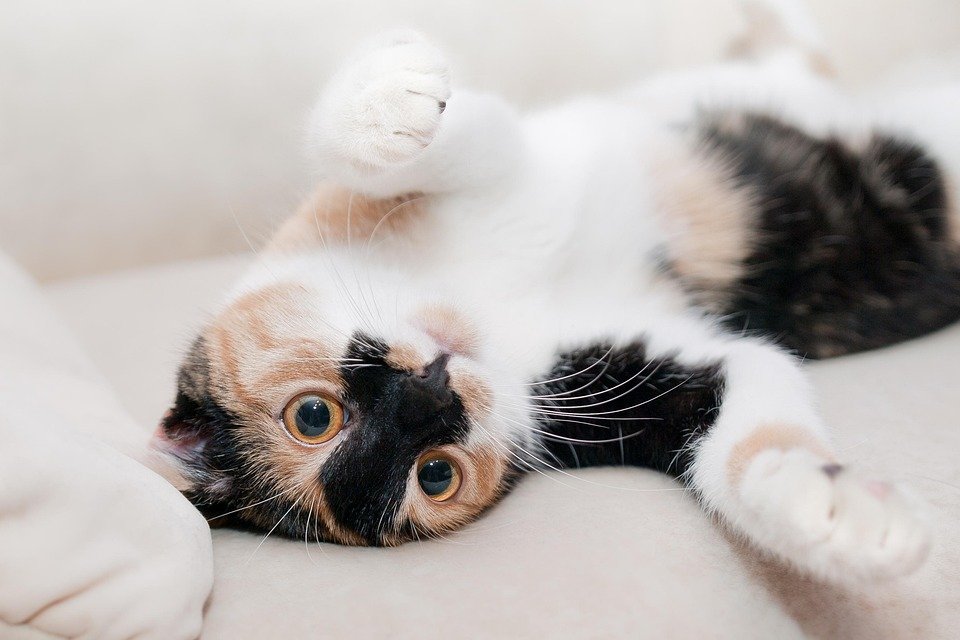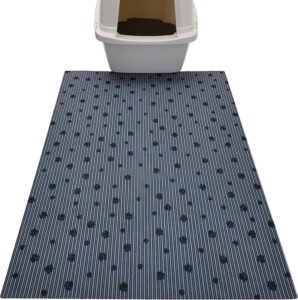
Introduction
Cats are beloved pets known for their independent nature and meticulous grooming habits. However, even the most diligent feline can occasionally develop unwanted odors. Managing these odors is crucial not only for maintaining a pleasant home environment but also for ensuring the health and well-being of your furry friend. This article provides comprehensive tips on managing cat odors effectively, focusing on grooming, litter box maintenance, diet, and other essential factors.
Understanding the Sources of Cat Odor
Before addressing cat odors, it is essential to understand their potential sources. Common causes include:
Litter Box
The litter box is often the primary source of cat-related odor in a home. If not cleaned regularly, it can emit strong, unpleasant smells.
Coat and Skin Condition
Cats naturally groom themselves, but certain conditions like skin infections, parasites, or poor hygiene can lead to a smelly coat.
Oral Health
Dental issues, such as periodontal disease, can result in bad breath, contributing to overall odor.
Diet and Digestion
A cat’s diet significantly influences the smell of their waste. Low-quality food or digestive issues can lead to unpleasant odors.
Effective Tips for Managing Cat Odors
1. Maintain a Clean Litter Box
One of the most effective ways to manage cat odors is by ensuring the litter box is clean.
– **Frequency of Cleaning**: Scoop the litter box at least once a day. Replace the litter entirely and clean the box with mild detergent weekly.
– **Type of Litter**: Choose a high-quality, odor-absorbing litter. Clumping litters are often effective in controlling smells.
– **Litter Box Location**: Place the litter box in a well-ventilated area to reduce odor concentration in a specific spot.
2. Regular Grooming
Regular grooming is crucial for preventing odors related to coat and skin conditions.
– **Brushing**: Brush your cat regularly to remove loose hair and prevent matting, which can trap odors.
– **Bathing**: While most cats clean themselves, occasional baths may be necessary, especially for long-haired breeds.
– **Check for Skin Issues**: Inspect your cat’s skin for signs of infection or parasites, which can cause odors. Seek veterinary advice if needed.
3. Ensure Good Oral Hygiene
Oral hygiene is often overlooked but is vital in managing bad breath and overall odor.
– **Regular Dental Check-ups**: Schedule regular veterinary dental exams and cleanings for your cat.
– **Tooth Brushing**: If possible, brush your cat’s teeth with feline-friendly toothpaste. Introduce this routine gradually.
– **Dental Treats and Toys**: Use dental treats and toys designed to help clean teeth and freshen breath.
4. Pay Attention to Diet
Diet plays a significant role in the odor of a cat’s breath and waste.
– **High-Quality Food**: Feed your cat a balanced, high-quality diet. Consult with your veterinarian to ensure your cat’s nutritional needs are met.
– **Avoid Sudden Diet Changes**: Gradually introduce any dietary changes to prevent digestive upset and associated odors.
– **Monitor Food Intake**: Overfeeding can lead to obesity and associated health problems, including digestive issues that may cause odor.
5. Address Health Issues Promptly
Underlying health issues can contribute to odors. Regular veterinary check-ups are crucial.
– **Parasite Control**: Use vet-recommended treatments to prevent and control parasites like fleas, ticks, and worms.
– **Monitor for Illness**: Be alert to changes in your cat’s behavior or appearance that may indicate illness, such as excessive drooling, which can lead to odor.
6. Use Odor-Neutralizing Products
Sometimes, despite best efforts, odors persist. In such cases, odor-neutralizing products can be beneficial.
– **Sprays and Deodorizers**: Use pet-safe sprays and deodorizers designed to neutralize odors without harming your cat.
– **Air Purifiers**: Consider using air purifiers with HEPA filters to keep the air in your home fresh and clean.
Conclusion
Managing cat odors requires a combination of regular grooming, proper litter box maintenance, attention to diet, and vigilance regarding health issues. By understanding the sources of odor and implementing these effective tips, you can ensure a pleasant-smelling home and a healthy, happy cat. Remember, maintaining a clean environment and addressing potential health issues promptly are key to managing odors effectively. With consistent care and attention, you and your feline friend can enjoy a fresh and odor-free living space.






